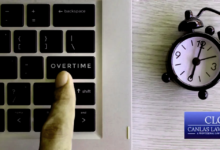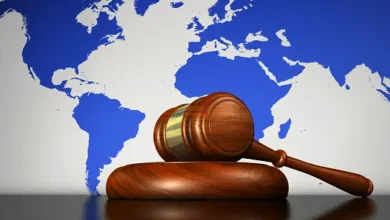Property Disputes in Illinois: How to Handle Legal Conflicts
Illinois property disputes Learn how to resolve boundary conflicts landlord-tenant issues & inheritance battles with expert legal strategies Get help today

Property disputes in Illinois can quickly escalate into complex legal battles, creating stress and financial strain for all parties involved. Whether it’s a disagreement over property boundaries, a landlord-tenant conflict, or an inheritance dispute, these issues often require careful navigation of Illinois property laws. Understanding the common causes of disputes and the legal remedies available can help property owners protect their rights and find fair resolutions before conflicts spiral out of control.
From unclear land surveys to contested wills, property disputes in Illinois arise in various forms, each demanding a tailored legal approach. Without proper intervention, these conflicts can lead to costly litigation, damaged relationships, and prolonged uncertainty. This guide explores the most frequent types of property disputes in Illinois, the legal processes for resolving them, and proactive steps to prevent conflicts before they start. By staying informed and seeking expert legal advice when needed, property owners can minimize risks and safeguard their investments.
Property Disputes in Illinois
Understanding Property Disputes in Illinois
Property disputes are common in Illinois and can involve residential, commercial, or land-related conflicts. These disagreements often arise due to unclear property lines, disagreements between neighbors, landlord-tenant issues, or inheritance disputes among family members. Resolving these conflicts requires a thorough understanding of Illinois property laws and the appropriate legal steps to take.
Common Types of Property Disputes in Illinois
Boundary and Easement Disputes
One of the most frequent property conflicts involves unclear property lines or unauthorized use of land. Disputes may arise when a neighbor builds a fence, driveway, or structure that encroaches on another’s property. Easement issues, such as rights of way for utilities or access roads, can also lead to legal battles.
Landlord Tenant Disputes
Conflicts between landlords and tenants often involve unpaid rent, lease violations, security deposit disagreements, or eviction proceedings. Illinois has specific landlord-tenant laws that outline the rights and responsibilities of both parties, making legal guidance essential in such cases.
Inheritance and Probate Conflicts
When a property owner dies without a clear will, disputes among heirs can arise. Siblings or other relatives may contest the distribution of property, leading to probate litigation. Proper estate planning can help prevent such conflicts.
Zoning and Land Use Disputes
Local governments enforce zoning laws that dictate how property can be used. Disagreements may occur if a property owner wants to use land in a way that violates zoning regulations or if neighbors oppose new developments.
Adverse Possession Claims
In rare cases, a person may claim ownership of a property by occupying it openly and continuously for a certain period (20 years in Illinois). These claims can lead to legal disputes if the original owner challenges the claim.
Legal Remedies for Property Disputes in Illinois
When property disputes arise in Illinois, parties have several legal avenues to pursue resolution. The appropriate remedy depends on the nature and complexity of the conflict, with options ranging from informal negotiations to formal court proceedings. Understanding these legal remedies can help property owners protect their rights while minimizing time and expense.
Negotiation and Settlement
The most cost-effective and least adversarial approach involves direct negotiation between the disputing parties or their attorneys. Many property conflicts can be resolved through Open communication to clarify misunderstandings. Compromise solutions that satisfy both sides. Written settlement agreements outlining terms. Attorney-assisted negotiations for complex cases. Settlements often save thousands in legal fees while preserving relationships between neighbors, landlords/tenants, or family members. However, if negotiations stall, other remedies may become necessary.
Mediation
When direct negotiation fails, mediation provides a structured alternative with a neutral third-party mediator. Key aspects include Voluntary participation (though sometimes court-ordered). Confidential proceedings unlike public court cases. Non-binding decisions unless parties agree otherwise. Lower costs compared to litigation. Faster resolution (often within weeks or months). Mediators help identify mutual interests and creative solutions, particularly effective for boundary disputes, easement conflicts, and co-owner disagreements. Illinois courts frequently recommend mediation before allowing cases to proceed to trial.
Litigation
When other methods fail, filing a lawsuit may be the only option. Litigation involves Filing a complaint in the appropriate Illinois court. Discovery process (document requests, depositions). Pre-trial motions to resolve procedural issues. Court hearings and potential trial. Judgment enforcement if the other party doesn’t comply. Litigation provides binding resolutions but often takes 1-3 years and requires significant legal expenses.
Quiet Title Actions
These specialized lawsuits resolve ownership uncertainties by Establishing clear title against competing claims. Removing “clouds” on title like old liens or heir claims. Resolving adverse possession disputes. Correcting deed errors (misspelled names, incorrect legal descriptions). This remedy is essential when property inheritance is disputed or title insurance issues arise.
Alternative Dispute Resolution (ADR)
Beyond mediation, other ADR options include Arbitration (binding decision by a neutral arbitrator). Early neutral evaluation (case assessment by an expert). Settlement conferences (judge-facilitated negotiations)
Many Illinois counties require ADR attempts before allowing property cases to proceed to trial, helping reduce court backlogs.
Steps to Take When Facing a Property Dispute
Review Property Documents Check deeds, surveys, and titles to understand legal ownership and boundaries. Consult a Real Estate Attorney Legal advice is crucial in interpreting laws and Property Disputes best course of action. Attempt Amicable Resolution Before pursuing legal action, try resolving the issue through discussion or mediation. File a Lawsuit if Necessary If no agreement is reached, litigation may be the only option. Follow Court Orders Once a judgment is made, ensure compliance to avoid further legal issues.
Preventing Property Disputes
Get a Professional Survey Clearly marked boundaries prevent future disputes. Draft Clear Leases and Contracts Well-defined agreements reduce landlord-tenant conflicts. Create a Will or Trust Proper estate planning avoids inheritance disputes. Stay Informed on Zoning Laws Ensure property use complies with local regulations.
Read More: Grandparents’ Rights in Illinois: Can They Get Custody?
Conclusion
Property disputes in Illinois can be complex and emotionally charged, but understanding your legal rights and options is the first step toward resolution. Whether you’re facing boundary disagreements, landlord-tenant conflicts, or inheritance disputes, taking prompt and informed action can prevent prolonged legal battles. Consulting with an experienced real estate attorney, exploring mediation, and Property Disputes documentation are all crucial strategies for protecting your property interests while minimizing stress and financial strain.
Ultimately, the best way to handle property disputes in Illinois is through prevention—clear contracts, updated surveys, and proper estate planning can help avoid many common conflicts. However, when disputes do arise, knowing when to negotiate, mediate, or litigate can make all the difference in achieving a fair outcome. By staying proactive and seeking professional legal guidance early, property owners can navigate these challenges with confidence and preserve the value of their investments for years to come.
FAQs
What is the most common property dispute in Illinois?
Boundary and easement disputes are among the most common, often involving unclear property lines or unauthorized land use.
How long does adverse possession take in Illinois?
A person must occupy the property openly and continuously for at least 20 years to claim adverse possession.
Can a landlord evict a tenant without a court order in Illinois?
No, Illinois law requires landlords to follow formal eviction procedures through the court system.
What should I do if my neighbor builds on my property?
Consult a real estate attorney and review property surveys. Legal action may be needed to resolve the encroachment.
How can I avoid inheritance disputes over property?
Creating a clear will or trust and communicating with heirs can help prevent conflicts after death.











